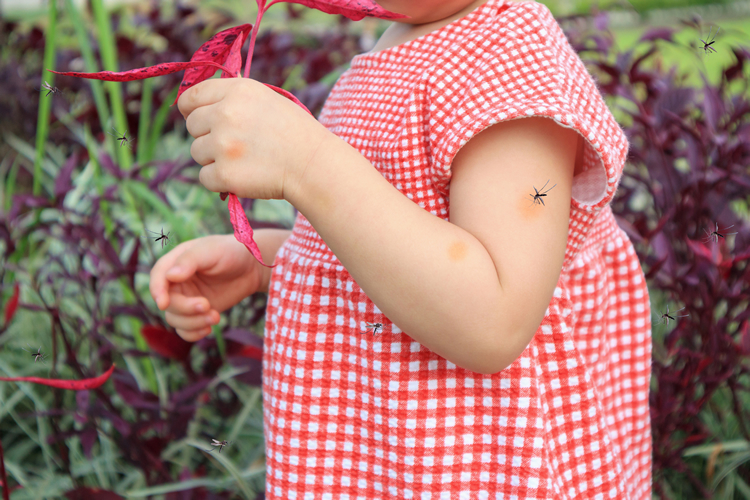Mosquitoes can’t take the heat.
So, when are you more likely to get mosquito bites? Female mosquitoes are most active and most likely to bite us during early morning hours before the sun has fully come up and the air temperature isn’t as hot. Mosquitoes find daylight to be deadly, as direct daylight can dehydrate them. Burn, baby, burn! For this reason, shaded woods, wetlands, and ponds – the most common locations that mosquitoes seek out for protection from the sun – are places you should definitely avoid during the day. They become active once again during the evening hours when the sun isn’t as hot. If you’re going to be outdoors for an extended period of time, change your outdoor activity to the heat of the day.

Dusk and dawn are the worst times for mosquito bites.
What is the worst time of year for mosquito bites in Central Mass?
Mosquitoes are most active in the greater area of Chelmsford, Massachusetts from June through August, but the true determination of high periods of mosquito activity are definitely weather dependent. The most active mosquito season is predicated on high temperatures and periods of rain and residual moisture. While some species are more active from dawn until dusk, it’s not uncommon to encounter mosquitoes in shady areas during the day. The cool and exceptionally wet spring in Massachusetts created breeding conditions that are highly favorable for mosquito activity. And with global warming trends on the increase, we can most likely expect more of the same as we welcome the more temperate temperatures of early autumn.
Professional Grafton mosquito control is paramount to mosquito bite prevention.
A professionally administered mosquito control spray is the most effective way to get rid of them and stop those bloodthirsty females from biting us. Typically applied every 3 weeks, a mosquito control barrier treatment is the surest way to stop them before they become a season-long nuisance.
Also read: Is West Nile virus in Massachusetts?

Dave Macchia, Central Mass Mosquito Control Expert
